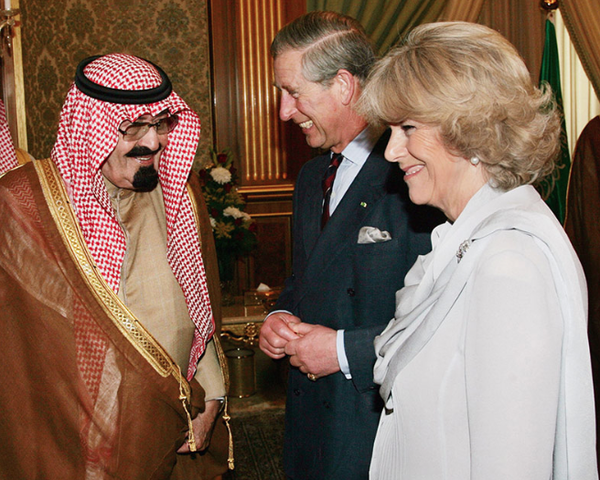Search
Recent comments
- chabad....
2 hours 30 min ago - back to the kitchen....
2 hours 32 min ago - loneliness....
4 hours 41 min ago - insight....
5 hours 12 min ago - conspiracy....
1 day 59 min ago - brutal USA....
1 day 2 hours ago - men....
1 day 3 hours ago - oil....
1 day 3 hours ago - system....
1 day 4 hours ago - not invited....
1 day 5 hours ago
Democracy Links
Member's Off-site Blogs
in saudi arabia the punishment for adultery is to be stoned to death .....

- By John Richardson at 28 Jan 2015 - 11:02pm
- John Richardson's blog
- Login or register to post comments
condolences lost in translation...
If the outpouring of condolences emanating from the upper echelons of the U.S. government over the death of King Abdullah last week are anything to go by, one could easily be led to believe that the world lost a truly humane, wise, perhaps even visionary leader. In fact, Secretary of State John Kerry tweeted as much, calling Abdullah a “man of wisdom and vision.” President Obama issued a statement calling the deceased despot “a force for stability and security in the Middle East” while the UK’s David Cameron—in addition to ordering flags to fly at half-mast—praised Abdullah’s role in “strengthening understanding between faiths.” The IMF’s Christine Lagarde even went so far as to claim Abdullah was “strong advocate of women.” Gloria Steinem, call your office!
But this really is all a bit de trop.
Making matters worse is the fact that President Obama is rushing off to Riyadh to pay his respects in person. This is all the more egregious since the administration sent no senior officials to the Je Suis Charlie solidarity march in Paris earlier this month, which the ever tin-eared presidential confidante Valerie Jarrett dismissed as a mere “parade.” Further, Mr. Obama, as the New York Times pointed out on Sunday, rarely travels abroad solely to pay his respects to departed foreign leaders, one notable exception being his decision to travel to South Africa on the occasion of Nelson Mandela’s passing. This, it hardly needs pointing out, is not that.
There are two ways of looking at this situation. One is that these fulsome expressions of grief over the loss of this be-robed and bejeweled tyrant are nothing more than ‘the usual hypocrisies’ endemic to the art of diplomacy. The other, worse, is that our own wise, humane, and visionary leaders really are sorry to see Abdullah pass on to his final reward. And if such is the case, it might be worth recalling some unpleasant facts about the king and his nearly decade-long rule.
read more:
http://www.theamericanconservative.com/articles/why-mourn-king-abdullah/
on the buses...
Sports boycotts in the 1970s and 80s helped stop apartheid in South Africa. In 2015, we should be using them to put an end to the ongoing gender apartheid in Saudi Arabia, write Giri Sivaraman and Anika Wells.
In late December, the Saudi Arabian football team arrived in Australia for the Asian Cup. Around the same time, on Christmas Day, two Saudi women were referred by their country's courts to face terrorism charges for defying a legal ban on female drivers.
The Kingdom of Saudi Arabia is the only country in the world where women are banned from driving. Saudi Arabia was also the only country not to have sent a single woman competitor to the Asian Games in South Korea last September.
Of course, Saudi Arabia wasn't the only country participating in the Asian Cup which denies human rights to their female citizens. In China, a woman undergoes a forced abortion every 2.4 seconds. Under Iran's Civil Code, a woman needs her father's permission to marry and has limited rights to request divorce.
The Asian Cup could not have proceeded if we took a stand on every human rights abuse committed by participating countries.
But there is a case that what is happening in Saudi Arabia is nothing short of gender apartheid. As such, a comparison could be made with Australia's approach to apartheid when it occurred in South Africa.
Read more:
http://www.abc.net.au/news/2015-01-30/sivaraman-wells-saudi-arabia-gende...